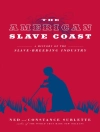This is the first book to examine the shifting relationship between humanitarianism and the expansion, consolidation and postcolonial transformation of the Anglophone world across three centuries, from the antislavery campaign of the late eighteenth century to the role of NGOs balancing humanitarianism and human rights in the late twentieth century. Contributors explore the trade-offs between humane concern and the altered context of colonial and postcolonial realpolitik. They also showcase an array of methodologies and sources with which to explore the relationship between humanitarianism and colonialism. These range from the biography of material objects to interviews as well as more conventional archival enquiry. They also include work with and for Indigenous people whose family histories have been defined in large part by ‘humanitarian’ interventions.
Tabella dei contenuti
Introduction: Selective humanity: Three centuries of Anglophone humanitarianism, empire and transnationalism – Trevor Burnard, Joy Damousi and Alan Lester
Part I: Transatlantic humanitarianism, 1760–1838
1 Anthony Benezet: A Short History of Guinea and its impact on early British abolitionism –
Trevor Burnard
2 An incident at the Sun Tavern: Changing the discourse on Indigenous visitors to Georgian Britain – Kate Fullagar
3 Humanity amidst calamity: Humanitarian discourse in New South Wales, 1788–1830 –
Jillian Beard
4 ‘Nor do they harbour vermin’: Material culture approaches to exploring humanitarian exchanges – Amanda B. Moniz
5 The realpolitik of emancipation in the British Empire, 1833–38 – Alan Lester
Part II: Humanitarianism and Indigenous peoples, 1838–c. 1950
6 Humanitarianism in a genocidal age: The tragic story of the Aboriginal prison on Rottnest Island, Western Australia, 1838–1903 – Ann Curthoys
7 From humanitarianism to humane governance: Aboriginal slavery and white Australia – Amanda Nettelbeck
8 Humanitarian priorities and West African agency in the British Empire – Bronwen Everill
9 The origins of exemption: The individual exception in the discourse of humanitarianism – Katherine Ellinghaus
Part III: A new international order, 1918–95
10 Gender, personalities and the politics of humanitarianism: Nursing leaders of the League of Red Cross Societies between the wars – Melanie Oppenheimer
11 ‘Springs of love’: Sentiment and affect in the development of mid-twentieth-century volunteering – Agnieszka Sobocinska
12 Humanitarian activism during the Vietnam War: The case of Rosemary Taylor, Elaine Moir and Margaret Moses – Joy Damousi
13 Humanitarianism in the age of human rights: Amnesty International in Australia – Jon Piccini
14 Palliation, poverty and child welfare: Human rights and humanitarianism in the 1980s – Roland Burke
Index
Circa l’autore
Trevor Burnard is Wilberforce Professor of Slavery and Emancipation and Director of the Wilberforce Institute at the University of Hull Joy Damousi is Professor of History and Director, Institute of Humanities and Social Sciences at Australian Catholic University Alan Lester is Professor of Historical Geography at the University of Sussex and Research Professor in History at La Trobe University












